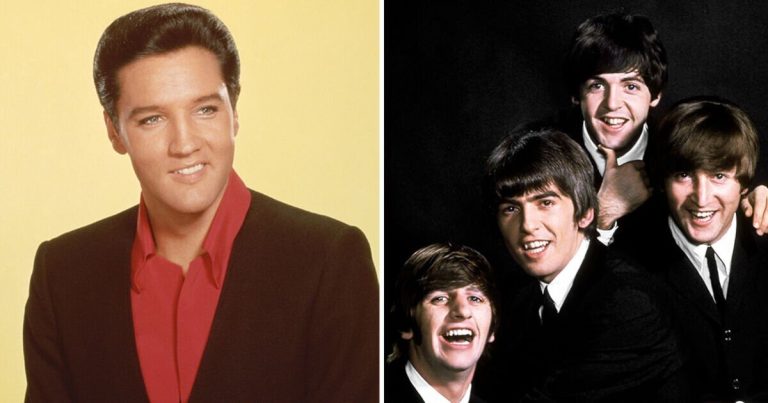
Patients who don’t feel heard by a health care professional are finding a voice on social media — with the hashtag #medicalgaslighting now garnering more than 226 million views on TikTok.
“Medical gaslighting” is a term used to describe the situation in which patients — often young individuals, women and minorities — feel their symptoms are inappropriately dismissed or labeled as psychological when they go to see a doctor.
The term “gaslighting” originates from a 1938 play about a diabolical husband who plots to drive his wife insane through treacherous mind games.
TINA TURNER SUFFERED FROM KIDNEY DISEASE BEFORE HER DEATH: ‘I HAVE PUT MYSELF IN GREAT DANGER’
In 1944, MGM released the psychological thriller “Gaslight,” starring acclaimed actress Ingrid Bergman, who won an Oscar for her convincing portrayal of an abused wife.
She discovers that her husband was planning to institutionalize her so that he could collect on her inheritance by driving her insane — in part by dimming the gaslights in the home while tricking her to believe it was in her imagination.

“When it comes to our personal health, we should all feel confident and empowered to be our own advocates,” said one health care professional. (iStock)
“When it comes to our personal health, we should all feel confident and empowered to be our own advocates,” Sylvia Kang, CEO and founder of health care company Mira in San Ramon, California, told Fox News Digital.
Mira helps women conceive with a home fertility tracker that provides personalized insights into menstrual cycles to maximize the chances of getting pregnant.
Some 65% of American women felt that their doctor dismissed, ignored or minimized the severity of their medical concerns.
Approximately 65% of American women felt that their doctor “dismissed, ignored or minimized the severity of their medical concerns,” according to a recent nationwide survey commissioned by Mira.
EXERCISE OF ANY AMOUNT COULD HELP INCREASE PAIN TOLERANCE, NEW STUDY FINDS
The survey also found that female millennials felt especially impacted, with 72% feeling ignored or dismissed by doctors, per a press release on Mira’s website.
Medical gaslighting is not new
In 1977, the U.S. Food and Drug Administration (FDA) recommended that reproductive-age women be excluded from early clinical drug trials.
There was a concern that the studies could potentially harm the fetuses of pregnant women and that hormonal changes during pregnancy would complicate the study’s results, according to the National Institutes of Health (NIH).
During this time, few females worked in medicine or research — and many women thought their needs were not a priority in scientific research, per the Office of Research on Women’s Health.

The experiences of medical gaslighting “can erode trust in medical professionals, create feelings of self-doubt and lead to delays in receiving proper care,” a health care professional told Fox News Digital. (iStock)
The policy also recommended excluding single women, those who used contraception and those whose husbands had a vasectomy, per the NIH.
“Medical gaslighting by health care providers can have a devastating impact on women,” Shawana S. Moore, a board-certified women’s health nurse practitioner who specializes in women’s health in Atlanta, Georgia, told Fox News Digital.
Research shows there’s still a gender gap in how providers are evaluating women compared to men.
“These experiences can erode trust in medical professionals, create feelings of self-doubt and lead to delays in receiving proper care.”
A 1993 law now mandates that medical research funded by the NIH include women and minorities — but 30 years later, research shows there’s still a gender gap in how providers are evaluating women compared to men.
A 2019 Danish study found that, with the exception of osteoporosis, women were on average diagnosed four years later for over 700 diseases.
“Experiencing medical gaslighting throughout my fertility journey was deeply disheartening, especially as a woman with hormonal imbalance and a higher BMI [body mass index] who sought to be well-informed and actively participate in my own care,” Kristy P., 33, a member of the Mira community who lives in Orlando, Florida, told Fox News Digital.
She said she felt “disregarded and frustrated” when her providers immediately pushed for invasive procedures such as in vitro fertilization (IVF) — solely based on her weight — rather than considering alternative treatment options based on her individual circumstances.

Some experts suggest bringing a loved one along to a medical appointment to avoid feeling discounted by health professionals. (iStock)
One example of how some providers may not consider differences in symptoms between genders has to do with chest pain.
Subtle chest pain symptoms
The classic symptoms of a heart attack are uncomfortable chest pain or chest pressure — sometimes described as a squeezing sensation that radiates to one or both arms — which lasts for more than a few minutes, according to the American Heart Association.
Many people assume heart disease is only a men’s health issue, but it is actually the No. 1 killer of American women.
“But women may experience other symptoms that are typically less associated with heart attack, such as shortness of breath, nausea/vomiting and back or jaw pain,” the association noted on its website.
LIFE-CHANGING COLD THERAPY HELPS PENNSYLVANIA MOM WITH AWFUL BACK PAIN: ‘COULD PICK UP MY DAUGHTER’ AGAIN
Some women who experience a heart attack may complain of pressure in the upper back that is described as a “squeezing” sensation or a feeling that a rope is being tied around them, the association added on its website.
Many people assume heart disease is only a men’s health issue, yet it’s actually the No. 1 killer of American women.

More women die from heart disease compared to all types of cancer combined, according to the American Heart Association. (iStock)
However, only slightly more than half of women in the U.S. are aware of this, according to the Centers for Disease Control and Prevention (CDC).
More women die from the condition compared to all types of cancer combined, per the American Heart Association.
‘A powerful reminder’
Some experts suggest bringing a loved one along to an appointment to avoid feeling discounted by health professionals.
“Women have the power to speak up and challenge dismissive attitudes in health care to receive the care they deserve,” Moore said.
Doctors spend years in medical school in the U.S. to master why a patient is coming to see them — what medical professionals refer to as the “chief complaint.”
“Women have the power to speak up and challenge dismissive attitudes in health care to receive the care they deserve.”
By simply talking to and examining patients, doctors can make the proper diagnosis without performing any further testing in 80% of cases, according to multiple studies.
Many doctors work hard to follow this practice — but some patients feel a subset can do better.
CLICK HERE TO GET THE FOX NEWS APP
“My story serves as a powerful reminder that weight should not be a barrier to compassionate and personalized care,” said the Orlando woman.
Kang of Mira in California is recommending that women become their own health advocates.
CLICK HERE TO SIGN UP FOR OUR HEALTH NEWSLETTER
“As women are diagnosed an average of four years later than men, there is no shame in asserting yourself by asking plenty of questions, expressing any concerns and seeking second opinions when your gut tells you something is off,” she said.






